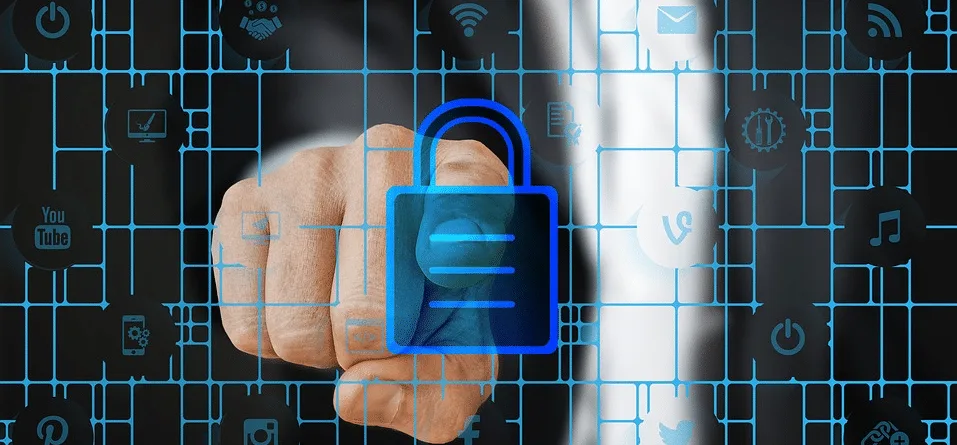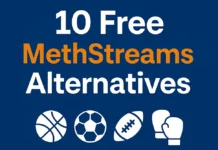Safety on the Internet is an important topic nowadays. The first concept that arises when you think about Internet safety is proxy servers. Proxy is a possible intermediate part of an Internet connection that directs requests from the user’s personal computer or mobile device to a website.
What Is a Proxy?
Each device used to access World Net is obliged to have a unique IP address containing geolocation, Internet provider, and the device itself. A proxy server allows you to hide your IP address, as it has its IP address, and you will be anonymous.
So, another essential purpose of proxy – masking of IP address. This can be useful, for example, when you want to access the website that is banned for your region or by your administrator. Other reasons where proxy can be a handful:
- Protection of your personal and confidential data
- Protect yourself from some viruses and cyberattacks (very useful for Enterprises)
- The necessity to connect several devices with availability only one IP-address
- Creation of safe Internet for kids with a ban to the dangerous websites
- Possibility to limit and calculate Internet traffic (the proxy server can be used for providing Internet access in general by an administrator)
- Usage proxy as a remote server for data and cash storage (this significantly reduces the load of a channel)
- A proxy server can speed up the work with the Internet.
All well-known browsers support proxy servers.
Major Categories of Proxies
Proxy servers can be identified based on the type of connection (transparent scheme; reversal scheme; etc.) and traffic encryption (FTP, HTTP, CGI, Socks). Also, a proxy server is different based on availability: free and paid ones. Free ones are limited in speed, stability of work, anonymity is not perfectly guaranteed. Also, they can be used for cyber attacks. Of course, there are possibilities to divide proxy into groups based on other criteria.
HTTP proxy is the most popular and the most universal (HTTPS is the subtype of this Proxy server). HTTP is working through a browser.
CGI is a protocol for the anonymous connection used only via browser.
SOCKS – a particular protocol for professional users. It is working only under special software. Provides compatibility with other protocols (unfortunately, some bots do not support SOCKS).
FTP – corporate and web developers proxy server, provides high protection. The main reason for using this proxy is Firewall in big Companies.
HTTP vs SOCKS Proxy Comparison
HTTP or SOCKS Proxy are the most interesting and the most common ones. Let’s look at them in detail.
In fact, it’s elementary to identify the type of Proxy. If it is not indicated in your program or browser by default, it will be HTTP. SOCKS should be indicated separately with the number of the version.
One of these proxies’ similarities is that their name consists of server name (host) and a port number separated by a double point. The difference is that the port name for SOCKS includes 1080, 1081, or similar; for HTTP, it is 80, 8080, 81, and 3128.
SOCKS is more flexible and safer than HTTP Proxy, and it gives absolute anonymity. The latest SOCKS version is 5; this is the most progressive proxy technology. The previous version of SOCKS worked with TCP; the new version works with UDP as well, which significantly increases the traffic and masks user IP address. The difference with HTTP is that it works with HTTP protocol, and it does not protect the user’s IP address.
Better characteristics of SOCKS are determined first because it was developed based on poor qualities of HTTP, but it is more complicated for setup.
HTTP vs SOCKS Differences
The main difference between HTTP and SOCKS is the type of work for vast volumes of information:
- HTTP has standard processing and transfer of traffic: data and function of several network protocols are packed in one package, cash is created as an intermediate buffer, where all data is stored.
- SOCKS is processing the actual traffic, not sending it to the user; this reduces the possibility to find the user’s IP address.
The summary for these two proxies is that SOCKS is universal and can work with most protocols. If you want to access banned websites, HTTP is a good choice; for anonymous surfing, it is better to choose SOCKS.
Why Do I Need a Proxy?
And at the end real examples of why you need a proxy:
- A Proxy can give you access to the banned websites. Choose a proxy applicable for this geolocation.
- In China, Instagram, Youtube, Twitter, Google are banned
- In Russia, Linkedin, Telegram, Spotify are banned
- In Iran, Facebook, Google, Whatsapp, Viber are banned
- In Turkey, Vietnam, etc., such websites as Twitter or Facebook can be temporarily banned.
- For massive following and liking in Instagram and Youtube proxy is crucial to promote your webpage or account.
- Massive registration in Telegram.
- To collect a massive amount of data.
Pay attention to the proxy that you are using. Summarize the proxy’s purpose and choose the best suitable based on the frequency of usage, cost, proxy speed, availability of technical support, long-term reputation, easy setup.
Additionally, some proxy servers can provide you with a private IP address that nobody except you will use; this is important for massive activities on all Internet resources. Typically, a private IP address is provided only at the pre-paid proxy, for free only shared IP addresses.
One more feature for active users of pre-paid proxy is dynamic IP-address (rotating), which can be changed during your Internet work. From the whole amount of proxy servers, it is better to use the ones with an authorization that can be executed via login and password or your IP address (or combined version); this is an additional plus to this proxy’s safety.
Because now there are two types of IP addresses – IPv4 (contains four groups of numbers from 0 to 255) and IPv6 (includes eight groups of symbols including letters and numbers) – do not forget to check how your chosen proxy is working. IPv6 addresses are blocked by blocking the addresses’ group (all ranges for the two last groups). IPv4 addresses are blocked individually. But proxy with IPv6 is several times cheaper than IP v4.
Many Internet websites currently are providing you opportunities to search proxy servers with your required parameters.




